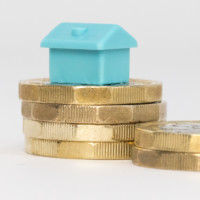
Prices rose 0.6% month-on-month compared with 0.7% in June, whilst on a three month basis prices returned to modest growth by bucking two months of falls, increasing by 0.4%, according to the Nationwide House Price Index.
Commenting on the figures, Robert Gardner, Nationwide’s chief economist, said house prices are expected to rise by around 1% over the course of 2018.
He also pointed out that the annual house price growth remains within the range of 2-3%, which has prevailed over the past 12 months. This suggests little change in the balance between demand and supply in the market.
He said: “Looking further ahead, much will depend on how broader economic conditions evolve, especially in the labour market, but also with respect to interest rates.
“Subdued economic activity and ongoing pressure on household budgets is likely to continue to exert a modest drag on housing market activity and house price growth this year, though borrowing costs are likely to remain low.
BoE rate rise to have modest effect
If the the Bank of England increases rates from 0.5% to 0.75% in August the impact will be muted, Gardner said.
He added: “Providing the economy does not weaken further, the impact of a further small rise in interest rates on UK households is likely to be modest.
“This is partly because only a relatively small proportion of borrowers will be directly impacted by the change. Most lending on personal loans and credit cards is fixed or tends to be unaffected by movements in the Bank rate.
“Similarly, in recent years, the vast majority of new mortgages have been extended on fixed interest rates. Indeed, the share of outstanding mortgages on variable interest rates has fallen to its lowest level on record, at c35%, down from a peak of 70% in 2001.
“Moreover, a 0.25% increase in rates is likely to have a modest impact on most borrowers who are on variable rates. For example, on the average mortgage, an interest rate increase of 0.25% would increase monthly payments by £16 to £700.”
Steve Seal, director of sales and marketing of Bluestone Mortgages, said: “Although house price inflation has creeped up, when we compare these numbers to a few years ago with near-double digits, this rise is still relatively modest.”














